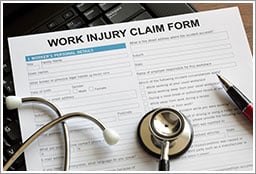 In order to take a closer look at Employers Liability (EL), let's start with the basics of Workers' Compensation. Work Comp applies to bodily injury or disease caused by a condition of your employment. There are no limits for work comp. In addition, the state helps to regulate the amount paid out for workers compensation benefits.
In order to take a closer look at Employers Liability (EL), let's start with the basics of Workers' Compensation. Work Comp applies to bodily injury or disease caused by a condition of your employment. There are no limits for work comp. In addition, the state helps to regulate the amount paid out for workers compensation benefits.
Employers liability, such as negligence, pays damages that you legally must pay because of bodily injury to your employees that are not covered by the workers' compensation policy. The limits shown on the declarations page are the employers liability limits.
The 4 most common types of Employers Liability claims are:
- Third Party Claim or Action Over: A claim filed by a third party against the employer for negligant actions that caused injury to an employee.
- Example: An employee is injured using machinery that was not well maintained by the employer. The employee received work comp benefits and also sues the manufacturer of the equipment. The manufacturer in turn sues the employer for negligence.
- Care and Loss of Services: Claim filed by the injured employees spouse for loss of the employees “services”. This can include dependents care and service that the injured parent can no longer provide.
- Consequential Bodily Injury: Claim filed by the injured employees family member for consequential injury.
- Example: Spouse suffers a heart attack after hearing of the injured employee
- Dual Capacity Claims: Claim brought by the injured employee against the employer when the injury arises from a product that the employer manufactures.
To learn more about Employers Liability or for questions about your business, contact a KnowledgeBroker.











